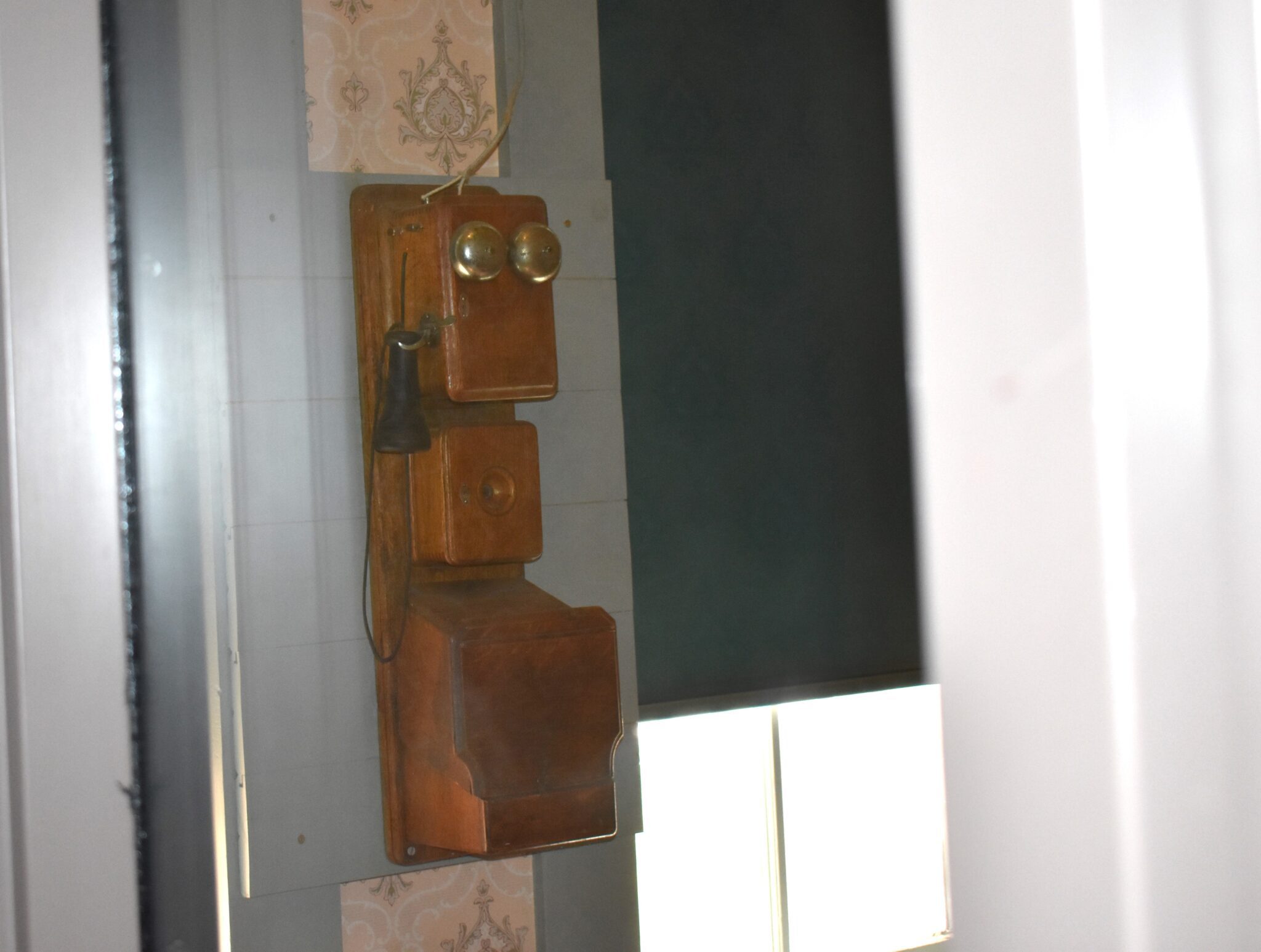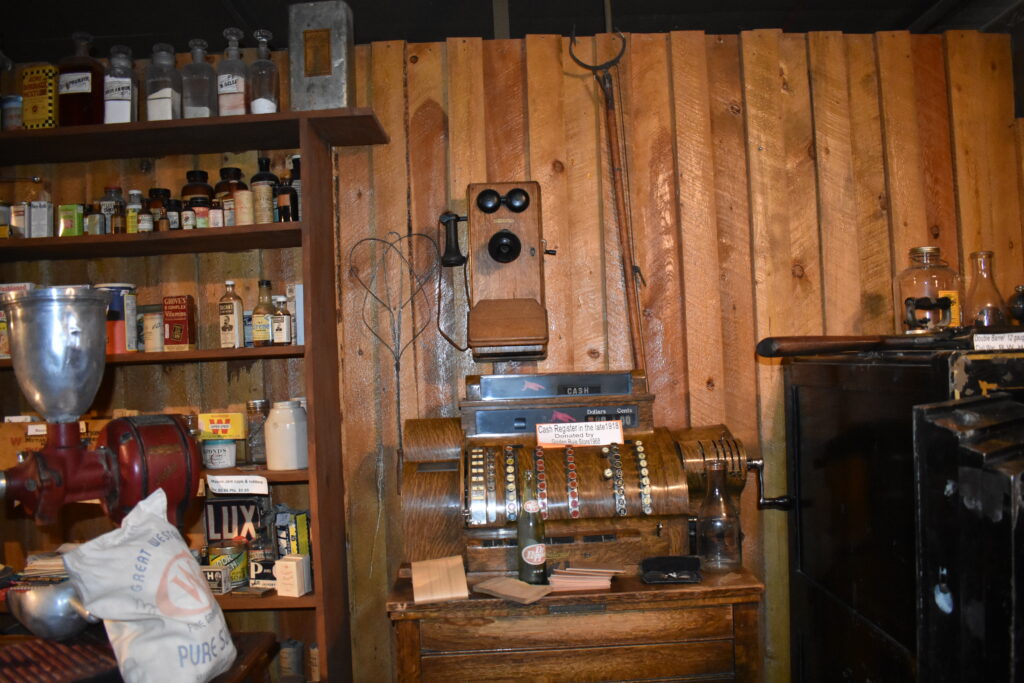News
Wyoming’s First Telephone Exchange Happened 142 Years ago this Month

Today, nearly everyone has either a cell phone or a land-line phone or both. But 142 years ago, in March of 1881, telephones were just coming to Wyoming. The first telephone exchange was established in Cheyenne on March 22, 1881. Later that year, service was made possible to Laramie. The Plains Hotel, built in 1911, was the first building to be installed with phones during its construction.
Cheyenne Weekly Leader, December 25, 1879 – A Telephone Exchange. Thanks to the enterprise of certain gentlemen, Cheyenne is to have the later distinguishing feature of first-class cities, namely, a telephone exchange. The subject has been agitated for some time, and after quiet consideration it was determined by the gentlemen hereinafter named, to establish the exchange. These persons filed articles of incorporation in Secretary States Office yesterday afternoon, the provisions of which are briefly as follows:
Section first says the name shall be the Cheyenne telephone exchange company.
Section second states that Cheyenne is fixed upon as the principal place of transacting business.
Section third names the nature of the business as follows: “To build, establish, maintain, operate, lease, or otherwise use telegraph and telephone lines and systems of telegraphing within the city of Cheyenne.”
“Also to establish and maintain a system of carrying and delivering messages, orders, packages, parcels, or other articles within the city aforesaid, by means of messengers, carriers or by other means.”
Section fourth provides that the capital stock shall be 35,000, divided into shares of $100 each, subject to be increased as provided.
Section fifth names the 22nd day of December as the date of the beginning of the corporation and the end on the same day and month of the year 1900.
The incorporators and trustees for the first year are, R. Law, Charles F. Annett and M. E. Post. Our city is to be congratulated upon the establishing of the telephone exchange, because of its many varied uses and conveniences.
All merchants, physicians, hotels, livery stables, newspaper offices, etc, will naturally be drawn into the exchange. Private residences and offices generally will also go in for the convenience and saving of time it will effect.

One can then sit at home and send orders for groceries, meat or dry goods; or for a physician at any time in the day or night. Or, if one wishes to speak to a friend in another part of the city, or at the post, all that needs to be done is to signal the central office to be put in connection with tho person desired, and the conversation can be carried on.
There is no danger of a confusion or that eavesdroppers will catch your words. Provision has been made against that. In fact, there is scarcely an end to the conveniences of the telephone exchange.
the above item would be interesting to those who grew up in the 60s in rural Wyoming. Most people were on a ‘party-line’ which was a telephone loop circuit shared by many subscribers. There was no privacy, if anyone happened to pick up the phone while you were chatting, they could and often did listen in.
The article continues: It is the intention of the company to start the exchange as soon as possible. Mr. Annett may probably visit the east in order to learn of the latest improvements in telephones and switchboards, so that the very best apparatus may be obtained.
The company will put up poles and wires about the city and make connections with places of business and dwellings. The instruments will be rented at a moderate figure, within the reach of all, so that a large and beneficial exchange may confidently be expected.
Unlike our cell phones, that mostly work even during snowstorms, and even most land lines today have telephone lines underground, early phone lines were above ground, often attached to power poles. They were subject to whims of weather, as seen in this article from the Laramie Sentinel, June 12, 1880 – A Nebraska Hurricane. Last Saturday, while we were all watching eagerly for Chicago news, suddenly the report came that the lines had gone down before a hurricane in Nebraska.
The Omaha News has a long account of the storm, from it we clip the following: “It originated at North Platte and gathered in fury as it proceeded eastward, until at Clarks it was a combined hurricane and deluge.

About 5 o’clock the first dark clouds appeared above Capital hill, and grew in blackness and density until an hour later, when the wind had reached a velocity of sixty miles an hour and the rain fell in torrents. Just before the storm began a curious phenomenon was witnessed. The air was filled with a substance which resembled flying frost in the winter-time, and which, on examination proved to be very line flakes of snow. The fall lasted for several minutes but melted before reaching the warm ground. The storm lasted several hours, and in its course created terrible havoc among telegraph and telephone lines, and the fire alarm circuit, the latter causing the bells in No. 3s engine house to ring, to the alarm of a good many. Signs and billboards went the way of the earth; umbrellas were turned inside out; hats blown into the gutter, and pedestrians often forced from the sidewalk into the street by the fury of the gale.”
Sheridan wasn’t far behind other Wyoming towns to embrace the new technology. From the Sheridan Daily Journal, January 22, 1895 – HELLO There are parties in the city who are looking over the ground with view of putting telephone exchange in our city. They are practical electricians and mean business and if they receive the encouragement to which they are really entitled, it will not be long ere our city will be enjoying the benefits of telephone exchange.
And later in The Enterprise, March 22, 1907 – The New Telephone System – Process of Cutting Over Will Be Completed Tomorrow. The Rocky Mountain Bell Telephone exchange in Sheridan will have its new equipment in full operation tomorrow as the work of “cutting in” will be completed by that time. Under the new system there will be plenty of room for all subscribers who may apply, and the service will be greatly improved by the use of the improved apparatus and system.
By 1903, there were many people who discovered the convenience of the telephone. This from The Sheridan Post, September 30, 1903. – Sheridan has a telephone exchange, with over two hundred instruments. The city exchange was built about six years ago, by W.G. Griffin, who sold out the plant this summer to the Rocky Mountain Bell Telephone Company, which company has greatly improved the plant and extended the system to all of the important towns and largest ranches. Connection can be had with Cheyenne, Meeteetse. Basin. Cody, Thermopolis, Billings. Dayton, Beckton, Buffalo, Banner, Kearney and other outside points

Although the telephone soon replaced the telegraph, in the Lander Eagle on March 3, 1911 there was this article – New Use for the Telephone – Bell Subscribers May Now Forward Messages to Telegraph Offices – The widespread and general use of the telephone in connection with the forwarding and also the delivery of telegrams has impressed the Western Union Telegraph company with the necessity for a more extended and valuable service to the public, which is now granted. All persons who may properly use a Bell subscriber’s telephone may forward telegrams to an open Western Union office at all hours of the day or night, but immediately upon the closing of the telegraph office in a community, whether at night or on Sundays or holidays, an arrangement is made by which those who wish to send telegrams may secure connection without any delay with a distant Western Union office to which the telegrams may be telephoned and no charge will be made for the use of the telephone circuit in forwarding such telegrams.
The procedure is a very simple one. A subscriber secures “central’ in the usual way. and states that he or she has a telegram to send. The central office makes the connection immediately with a distant Western Union office which never closes and the subscriber thereupon telephones the telegram to an expert receiving operator. The Western Union will deliver by telephone all telegrams which may be destined to subscribers of Bell telephones in communities where the local Western Union office may be closed. The farming and outlying communities Bell telephone subscribers are given the privilege of forwarding direct to a Western Union office.
It didn’t take long for most businesses and many homes to have telephones, as we see in these brief notations from the early newspapers.
Phone service was quit different in the early days, instead of a direct dial as we do now, there were manual telephone switchboards, controlled by switchboard operators, many who were women, who connected incoming calls by inserting a pair of phone plugs into the appropriate jacks. During the 1930s, automated systems began to replace the switchboard operators, allowing for direct dialing.
Sheridan Daily Enterprise, telephone numbers on January 27, 1910

And from The Evanston Register, September 16, 1893

In 2021, in the United States there were approximately 97.11 million fixed telephone line subscriptions, but fixed lines are decreasing with the use of cell phones. In 2022, there were around 327 million cell phones.
Even since the Europeans came to the shores of America, they have been working to improve communications across the United States. The stagecoach and the pony express carried mail from coast to coast, only to be replaced by the faster trains. Then the telegraph could send messages faster than the train could travel. Telegraph was then replaced by the telephone, but inventors didn’t stop there.
Smaller rotary dial wall and desk phones replaced the old crank telephones, now seen in museums. Later came cordless headsets, and caller ID. Today there are small, handheld cell phones that can not only make calls, but send real-time texts, take photos, allow for face-time calls, and connect with the internet. In a little over 100 years, phones have changed to an unbelievable degree. What changes might be on horizon?

